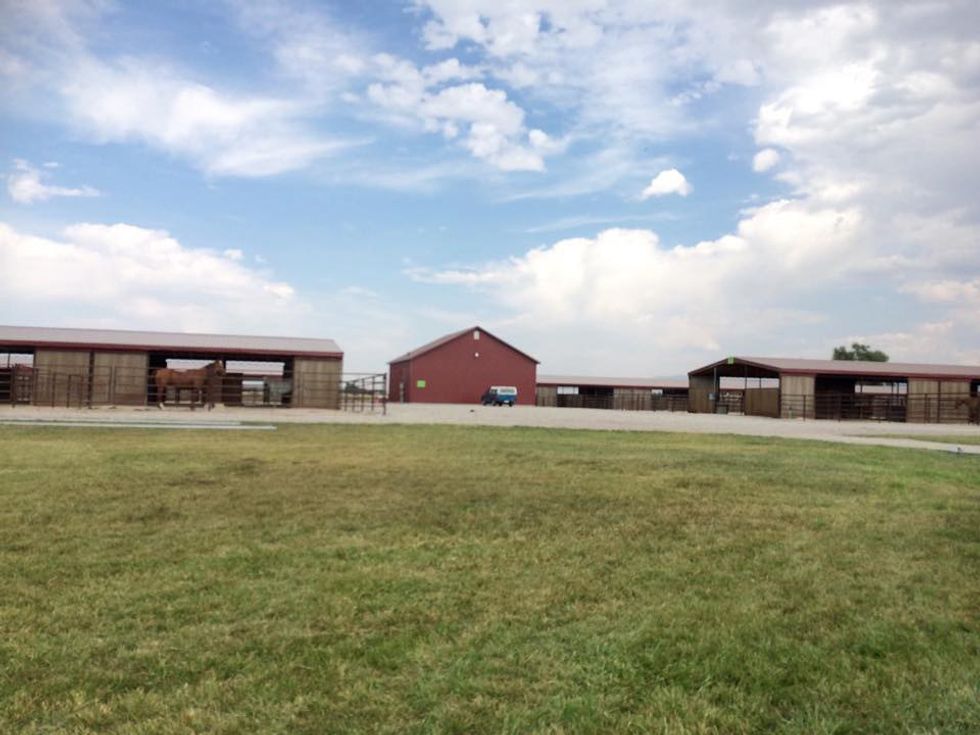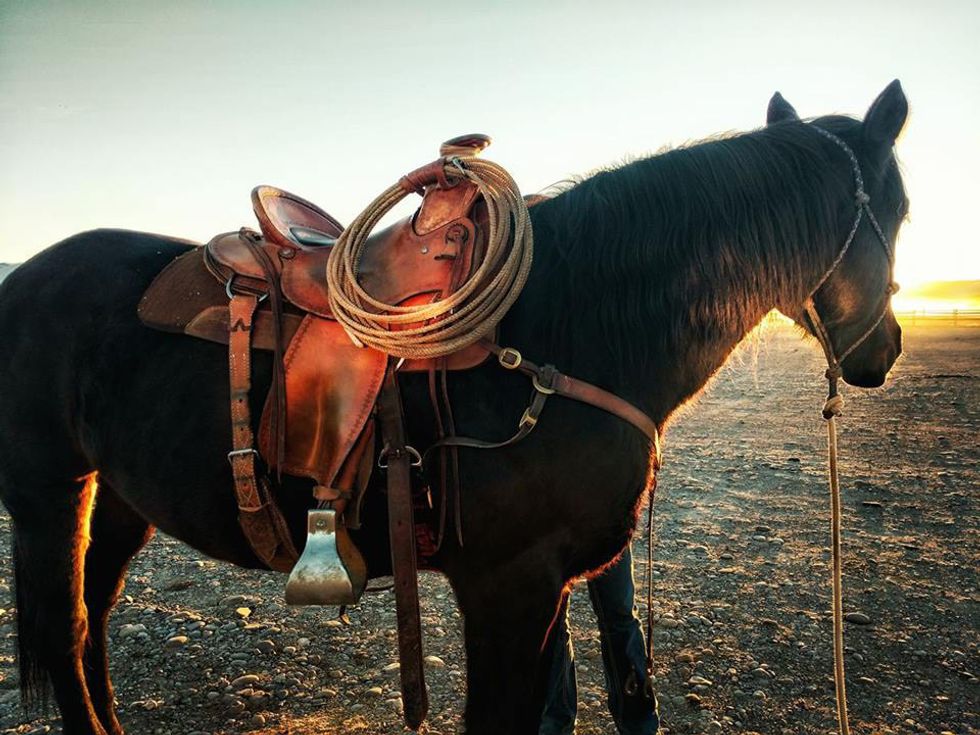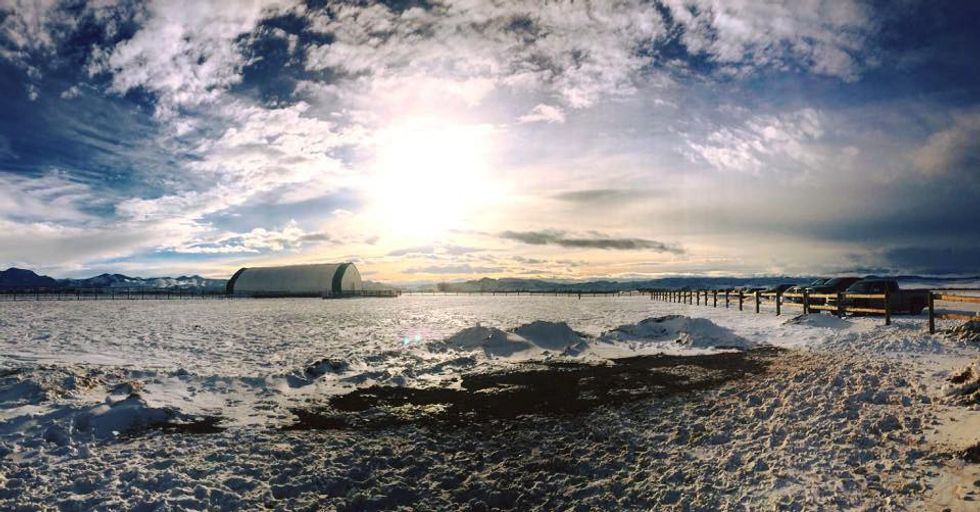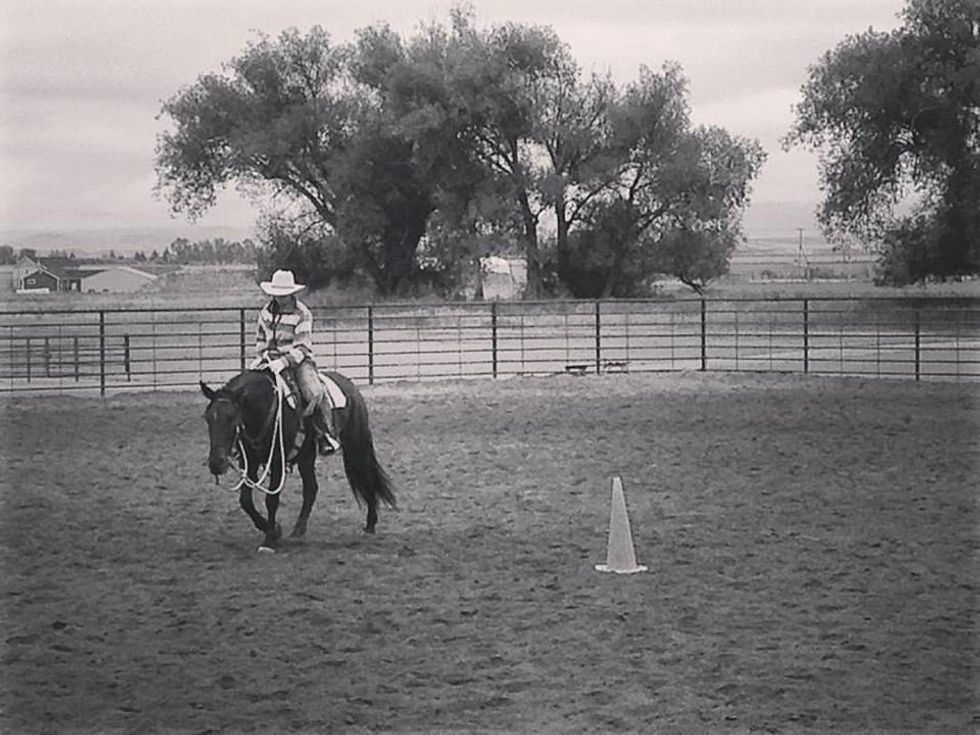In the beginning of my senior year of college I was given an incredible opportunity to partake in a class called "Methods of Teaching Horsemanship" and become a Teacher's Assistant. Typically when I think of a Teacher's Assistant, grading papers and helping students outside of class comes to my mind. However, this wasn't any ol' lecture class, this was a 1st Year Horsemanship class at the University of Montana Western. English translation? thirteen horses + thirteen students.
Due to the nature of my minor, which is Equine Instruction, I am required to clock in some hours working with students and their horses. Through the class "Methods of Teaching Horsemanship", I spent two months helping (emphasize on the word 'helping') teach 13 freshman Natural Horsemanship majors. All of whom were starting their very first Natural Horsemanship class that they had ever taken. This was the beginning of the most surprising journey of my entire college career.
We always meet on the first day in a red barn. It's tradition, just accept it.
I was very excited to start the class. I was also very nervous. In fact, I'll just be brutally honest here: I was scared out of my mind. The situation was so intimidating; there were so many horses, so many students, and I knew none of them. This wasn't like walking into a 2nd or 3rd year Horsemanship class, where I had known all the horse and rider combinations for years. This was uncharted. I wasn't completely sure where I belonged in the spectrum of the class. The silver lining was that after each class I had learned something new. Interacting with the class in a teaching-role versus a student-role had forced me outside of my comfort zone. It allowed me to see from a perspective that I never had before. That fact, changed my entire outlook on not only horsemanship but also on people.
We end class once the sun starts to set. Sounds intense? It is.
As the class continued, I got to know the students and horses on deeper levels. Familiarity with the students/horses elicited more focus from me. The days of just riding around working on my own horse were gone. Now I had students coming up to me with questions. Questions that sometimes I didn't have answers or ideas for. Although I was grateful for the fact that students were beginning to trust me enough to ask more questions, I also felt an increasing responsibility to have ideas for them to try. This pushed me in my own desire to understand horsemanship (and education) to another level. The days when I didn't have answers for anyone, were when I experienced the word 'discouraged' like I never had before. The phrase, "Why did they even let me do this?" popped into my head more than once.
It's getting close to the end of the class, so naturally snow is now everywhere (and we are all seriously in need of some hot cocoa).
This class pushed me so far out of my comfort zone I almost had to laugh about it. However, when it started getting closer to the Final, I realized that I was a little sad. Plus, I was learning so much from both a Horsemanship and Education standpoint that I was bummed when it was finished. At the Final I watched a group of students who had improved in so many ways, it really impacted me. I had taken a tremendous amount away from the experience and learned so much from them and their own styles of Horsemanship. Their perspectives, struggles, and victories were something that I had been able to participate in and with that I felt an enormous wave of gratitude.
So, for all the Teacher's Assistant's out there.
The take away is that as a Teacher's Assistant (in any class but maybe especially in a Horsemanship Class), you'd better be ready to learn. Don't assume that teaching is your #1 priority. Understand that learning from the students is your #1 priority. For Heaven's sake, make sure you take the advice of your Professor/Teacher/Instructor. Being willing to learn from your Teacher/Professor/Instructor is the vital component to your success. Plus, when everything starts to fall apart, that Teacher will be your lifeline.
Lastly.
(and maybe most importantly), understand that you can help be a bridge between those new students and their Teachers. Even if your struggling with explaining and helping students with the course curriculum, you have the authority to take those confused students to the Teacher. You can start a discussion by setting the example that it's okay to ask questions, its okay to make mistakes, and its okay to not always have the answer yourself (even if you are the Teacher's Assistant).
*I'd especially like to say thank you to the Equine Department faculty and Instructors, who not only gave me this experiential learning opportunity via the class of Methods of Teaching Horsemanship, but also helped me every step of the way. Also, thank you to the Natural Horsemanship students who so graciously put up with me as their clumsy, good-intentioned, Teacher's Assistant. You guys were the best.*
Duncan.









 mr and mrs potato head
StableDiffusion
mr and mrs potato head
StableDiffusion










